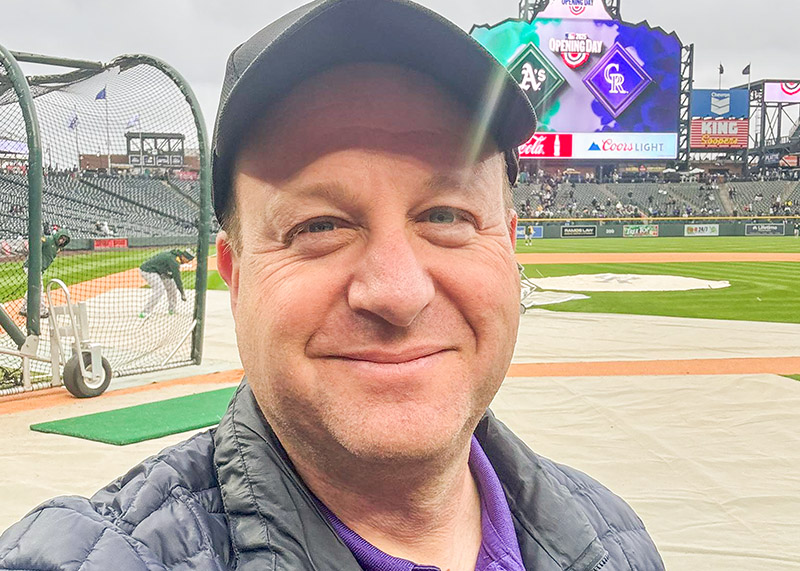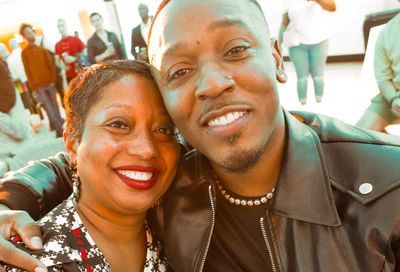Philadelphia can refuse to contract with foster agencies that discriminate against same-sex couples, appeals court rules
Court finds city's nondiscrimination policy did not violate a Catholic foster care agency's religious freedom

A federal appeals court has ruled that the city of Philadelphia can keep in place its policy requiring all foster and adoption agencies that it contracts with to abide by the city’s nondiscrimination policies, which prohibit discrimination based on sexual orientation.
In a unanimous decision issued on Monday, a three-judge panel on the 3rd U.S. Circuit Court of Appeals ruled that the nondiscrimination policy did not unlawfully discriminate against Catholic Social Services, which objected to having to place children with same-sex couples or other prospective parents who don’t abide by Catholic doctrine.
But the city argued that their policy was neutral, and that CSS was only asked to agree to terms that other child placement agencies had agreed to, without incident.
The court also found that the city’s refusal to contract with CSS did not amount to religious persecution or bias, or violate its First Amendment rights of free speech and religious freedom.
In the decision, Circuit Judge Thomas Ambro ruled that the city was merely trying to stop what it considered a “clear violation” of its nondiscrimination law prohibiting discrimination based on sexual orientation.
“The question in our case is … whether CSS was treated differently because of its religious beliefs,” Ambro wrote on behalf of the court. “Based on the record before us, that question has a clear answer: no.”
Ambro also specifically drew distinctions between the Philadelphia case and the Supreme Court’s Masterpiece Cakeshop decision, noting that, unlike in the Masterpiece case, there is no evidence of outright hostility towards religious agencies.
And, despite CSS’s attempts to portray the city’s actions as biased against religious agencies, there is no evidence that the nondiscrimination policy infringes on religious freedom, that the city was disrespectful towards CSS or other religiously-affiliated agencies, or that the city singled out CSS for disparate treatment based on objections to the agency’s deeply-held beliefs.
Lori Windham, a lawyer representing Becket, a nonprofit that seeks to defend religous liberty, called the 3rd Circuit’s decision “devastating” to hundreds of foster children waiting for placements and prospective foster parents who work with religiously-affiliated agencies.
Windham also vowed that Becket would “continue this fight,” which could foreshadow a decision to appeal the decision to the U.S. Supreme Court.
Last July, after a district court judge refused to issue an injunction stopping the city from enforcing its nondiscrimination policy, lawyers for CSS attempted to get the U.S. Supreme Court to hear the case by arguing that the policy would put CSS and other agencies out of business.
At the time, Justices Clarence Thomas, Samuel Alito, and Neil Gorsuch said they would have granted CSS’s request to hear the case, reports Reuters.
But the American Civil Liberties Union and ACLU of Pennsylvania, representing the Support Center for Child Advocates and Philadelphia Family Pride, which intervened in the case, celebrated the court’s decision.
“This is a victory for the thousands of children in Philadelphia’s child welfare system,” Leslie Cooper, the deputy director of the ACLU’s LGBT and HIV Project, said in a statement. “Many of those children live in group homes, are separated from siblings, or age out of foster care without ever becoming part of a family because of the shortage of foster and adoptive families to care for them. Prospective foster and adoptive parents should be judged by their capacity to provide love and support to a child, not the religious views of a tax-funded agency.”
Cooper also noted that while religious liberty is a fundamental freedom, it does not entitle child placement agencies to impose their will onto government-sponsored programs.
“The city of Philadelphia recognizes the need to maximize the number of families available for children in foster care and has every right to insist that the agencies it hires to find families for these children accept all qualified families,” she added. “Nothing in the Constitution puts the religious beliefs of these agencies ahead of the needs of the children in their care.”
Currently, 10 states have laws on the book that allow religiously-affiliated child placement agencies to refuse to place children with prospective parents, including same-sex couples, for any number of reasons.
“By refusing to allow public funding of foster care agencies that discriminate based on sexual orientation, the City of Philadelphia has sent a message that children deserve loving families that are safe, diverse, and welcoming,” Christina Wilson Remlin, the lead counsel at the advocacy organization Children’s Rights, said in a statement. “Today’s decision signals that discriminating against same-sex couples is illegal and harmful to all children. Unfortunately, 10 states still allow discrimination against LGBTQ adoptive parents, and we hope that this decision will encourage them to prioritize the best interest of children by maximizing the number of loving homes available to the kids who need them most.”
Support Metro Weekly’s Journalism
These are challenging times for news organizations. And yet it’s crucial we stay active and provide vital resources and information to both our local readers and the world. So won’t you please take a moment and consider supporting Metro Weekly with a membership? For as little as $5 a month, you can help ensure Metro Weekly magazine and MetroWeekly.com remain free, viable resources as we provide the best, most diverse, culturally-resonant LGBTQ coverage in both the D.C. region and around the world. Memberships come with exclusive perks and discounts, your own personal digital delivery of each week’s magazine (and an archive), access to our Member's Lounge when it launches this fall, and exclusive members-only items like Metro Weekly Membership Mugs and Tote Bags! Check out all our membership levels here and please join us today!




















You must be logged in to post a comment.